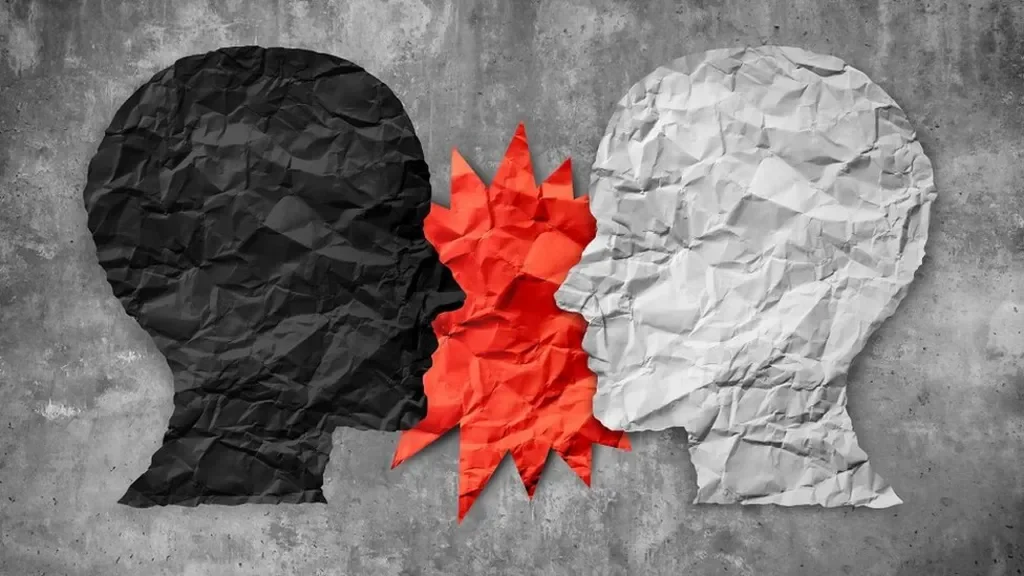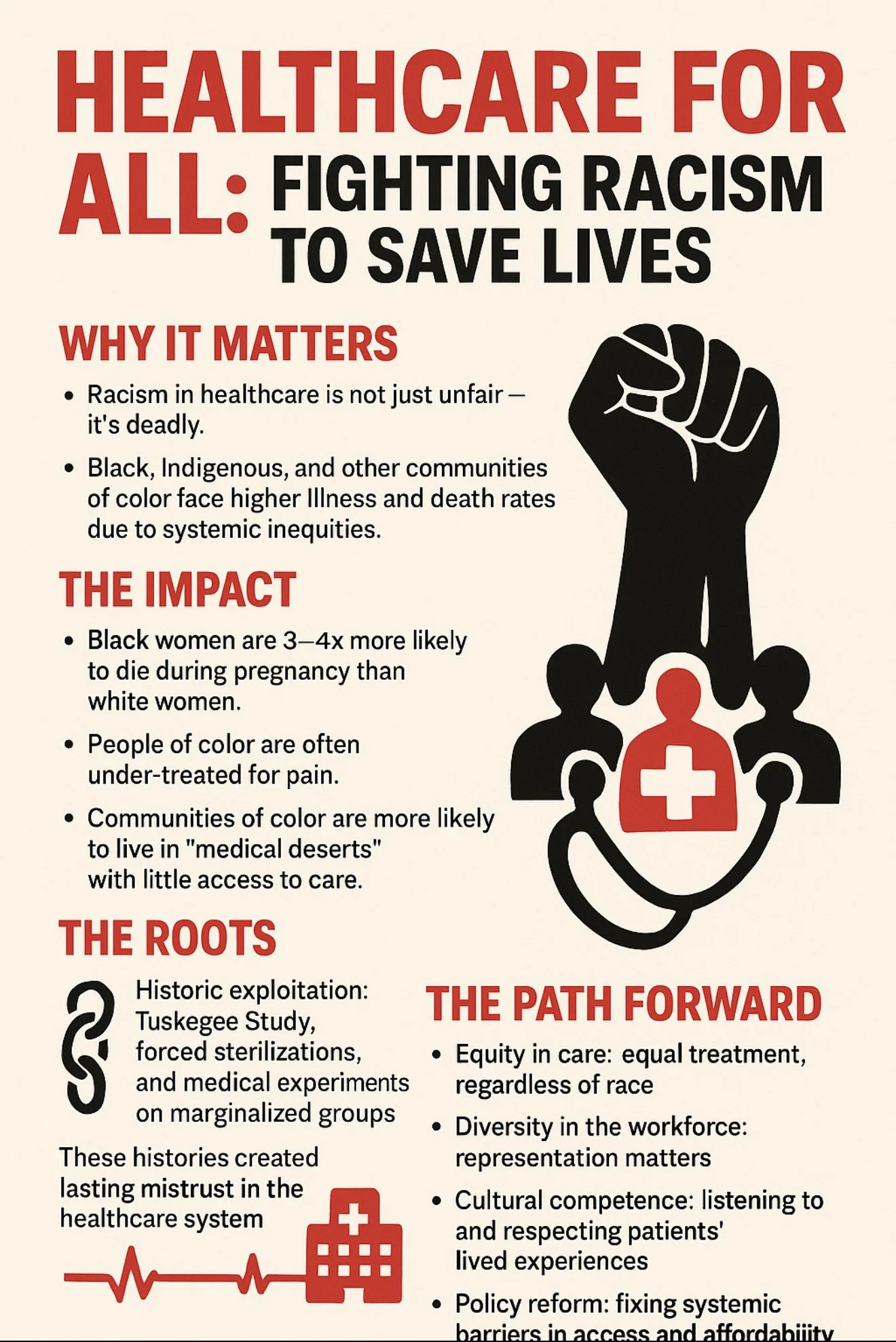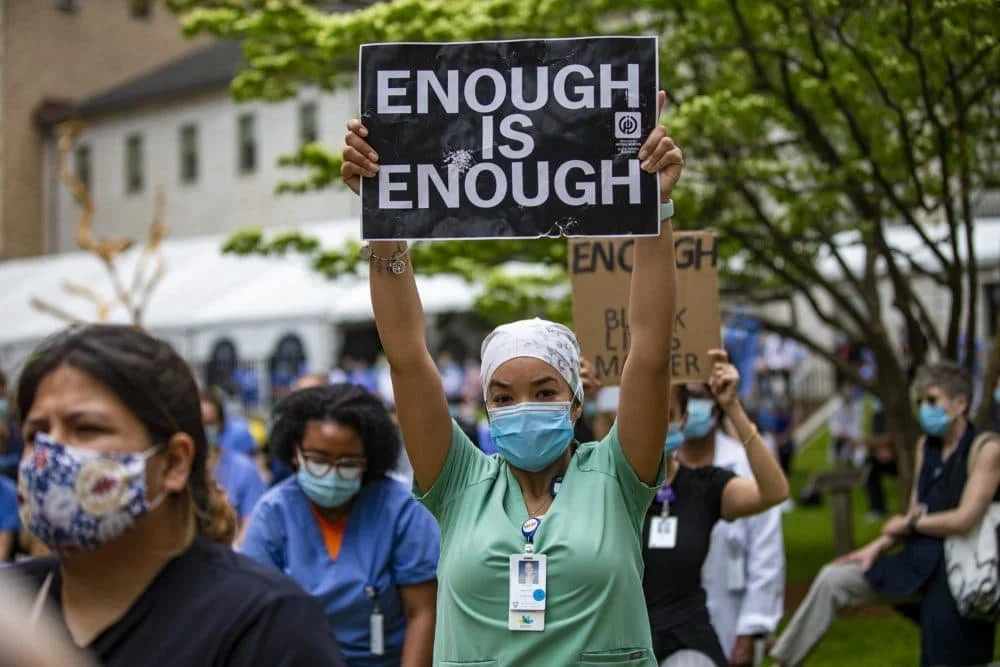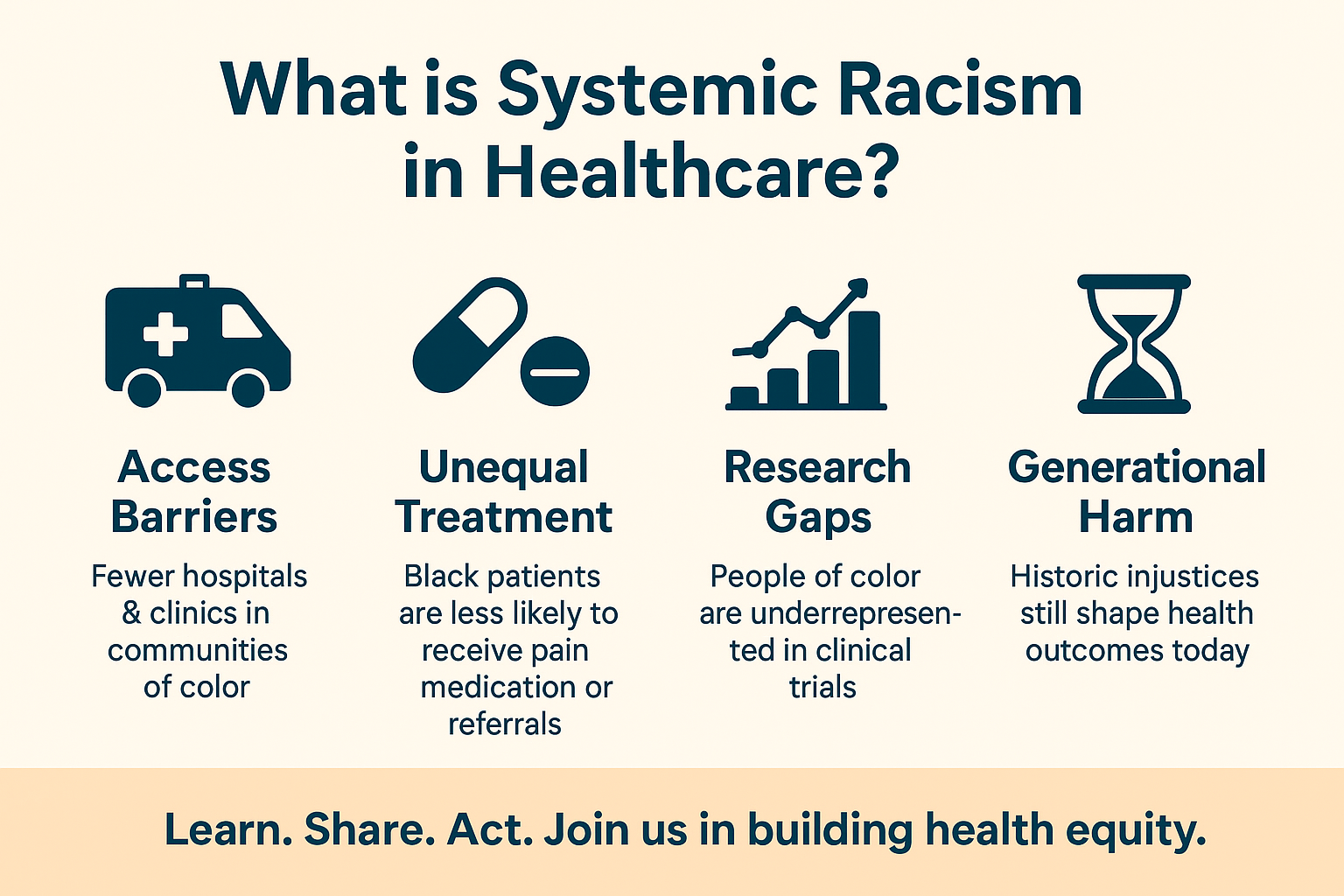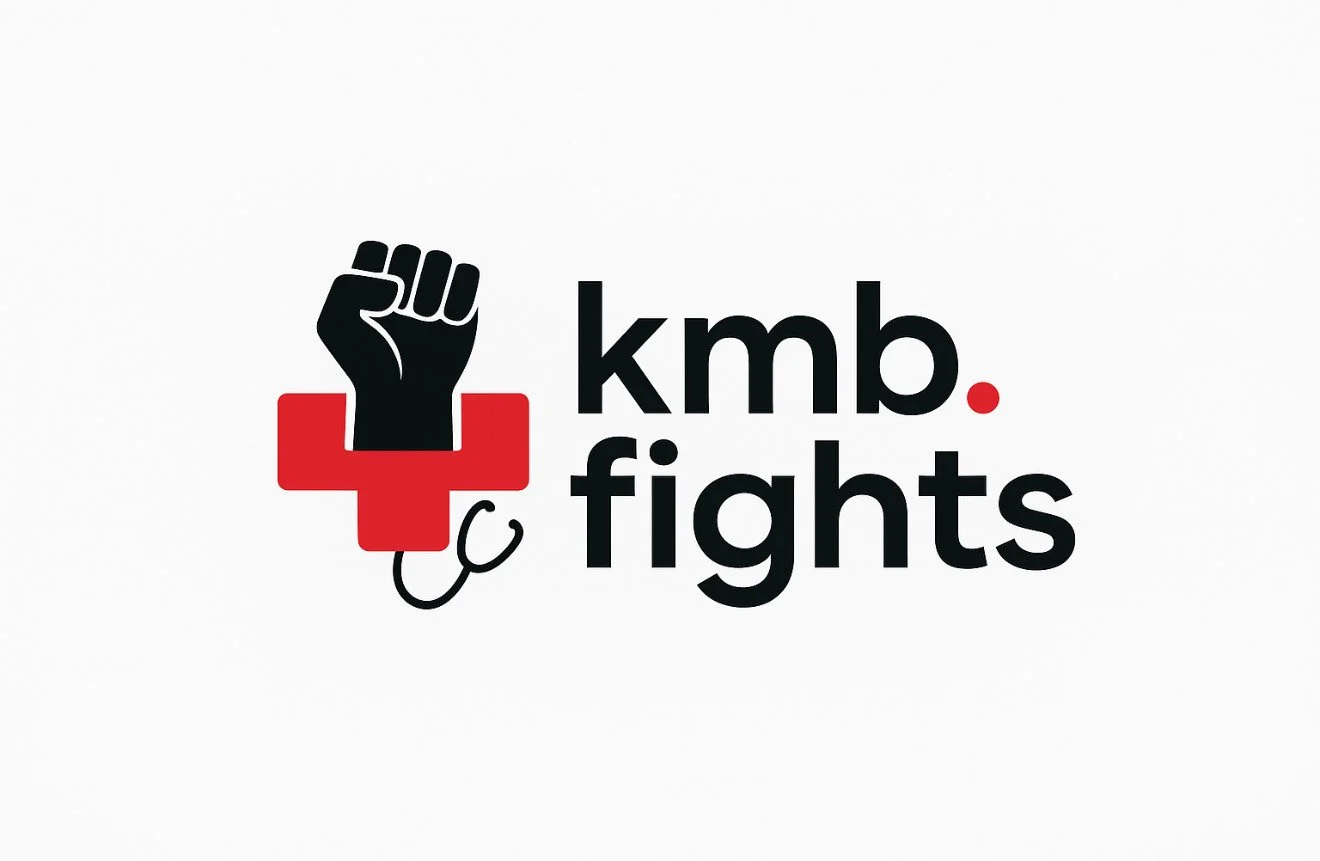
Hello! welcome to KMBFIGHTS.com
About
My name is Kasira. I am a senior in high school and my goal for this website is to talk about what people are afraid to discuss, racism. As a unity, we should all fight for what is right. We all have a heart, used to pump blood. We all have a brain, which is responsible for thinking. We all have lungs, that helps us inhales oxygen and exhale carbon dioxide. We are all human.
Introduction
Healthcare racism can be caused by systemic racism. Systematic racism refers to the ways in which racism is embedded into the policies, practices, and structures of the healthcare system, resulting in unequal access, treatment, and outcomes for people based on race. It is not just about individual prejudice or discrimination, but about institutional patterns that consistently disadvantage certain racial and ethnic groups. The effects of systemic racism weigh heavily on people of color.
“Health should be a right- not a privilege. Yet systematic racism in healthcare means communities of color face higher risks, less access, and worse outcomes. Together, we can change this.”
Short Timeline
1800s–1900s: Segregated Hospitals: Black patients were denied care at many hospitals or sent to underfunded, segregated facilities. Even after desegregation, resource gaps persisted.
1940s–1950s: Forced Sterilizations: Thousands of women of color and poor women (especially Black, Latina, and Native American) were sterilized without proper consent under state “eugenics” programs.
1951: Henrietta Lacks’ Cells: Cells from a Black woman, Henrietta Lacks, were taken without her consent and became the famous HeLa cell line, used in research worldwide without benefit to her family.
1932–1972: Tuskegee Syphilis Study: The U.S. Public Health Service studied Black men with syphilis in Alabama without their informed consent. Effective treatment (penicillin) was deliberately withheld to observe disease progression.
Post-WWII–1960s: Exclusion from Clinical Trials: Women and racial minorities were routinely excluded from medical research, leaving treatments less effective for them
ONGOING IMPACT AND TRUST TODAY: This led to False medical beliefs about biological differences, Black patients “feeling less pain”. Hospitals in historically redlined and segregated neighborhoods remain underfunded, leading to fewer resources, longer travel times, and worse outcomes. abuses still fuel skepticism toward clinical trials, vaccines, and healthcare providers in communities of color.
Real Patient Experiences & Examples 1. Serena Williams – Postpartum Care • After giving birth in 2017, tennis champion Serena Williams experienced shortness of breath and recognized symptoms of blood clots (a condition she had a history of). • She reported her concerns, but medical staff initially dismissed them. She had to insist repeatedly before tests confirmed life-threatening blood clots. • Her story highlights how Black women’s voices are often ignored, contributing to disproportionately high maternal mortality rates.
Pain Management Bias • A Black patient with sickle cell disease (a painful genetic blood disorder disproportionately affecting African Americans) reported being treated as a “drug seeker” in the ER. • Instead of receiving urgent pain relief, they were questioned and delayed, despite medical guidelines recommending fast intervention. • Studies show Black patients are less likely to receive pain medication than White patients with the same symptoms
Soultions:
Culturally Competent Care & Anti-Bias Training • Train healthcare providers to recognize and address unconscious bias. • Integrate cultural understanding into patient care (e.g., language services, respect for traditions, inclusive communication). • Example: Hospitals with interpreter programs reduce misdiagnoses among non-English-speaking patients. Invest in clinics and hospitals in historically marginalized neighborhoods.
Importance of Diverse Healthcare Leadership • Patients benefit when leadership and providers reflect the communities they serve. • Diversity in medical schools, residency programs, and hospital boards leads to better trust and outcomes. • Example: Studies show Black newborns are more likely to survive when cared for by Black physicians.
📞 Hotlines & Community Support
Planned Parenthood Direct – Telehealth and reproductive health services. • SAMHSA Helpline (1-800-662-4357) – Free, confidential treatment referral and info service. • Local community health centers (find via HRSA.gov) – Affordable care in underserved areas. • Black Women’s Health Imperative – Support, advocacy, and resources for Black women.
✊ Get Involved
👩🏽🤝👨🏼 Volunteer Opportunities • Local community health fairs, free clinics, and mobile testing units. • Mentorship programs for underrepresented students entering healthcare fields. 📝 Petitions & Advocacy Campaigns • #HearUsSeeUs – Advocacy for Black maternal health. • Health Equity Now (Families USA) – Policy-driven campaigns for Medicaid expansion and equity laws. 💝 Donate to Trusted Nonprofits • Black Mamas Matter Alliance • NAACP Health Division • National Urban Indian Family Coalition • White Coats for Black Lives
🌍 Learn. Share. Act. Join us in building health equity.
how can you help ? NAACP Health Division – Advocates for eliminating racial health disparities through policy and education. • Black Mamas Matter Alliance – Focused on improving Black maternal health outcomes and rights. • National Urban League Health Initiatives – Promotes access to affordable, quality healthcare for underserved communities. • Center for Health Equity (CDC) – Federal initiatives advancing fair health outcomes. • National Indian Health Board – Supports tribal health equity and sovereignty.
Contact Us
Interested in working together and/or have any stories to share? Fill out some info and we will be in touch shortly. We can’t wait to hear from you!
